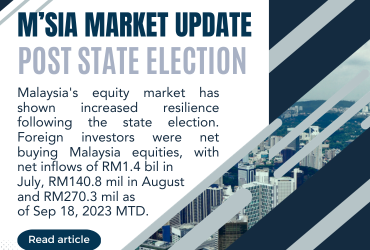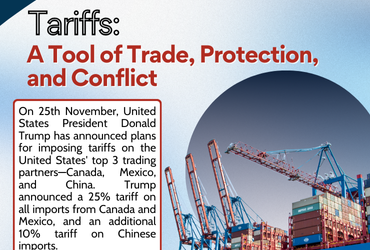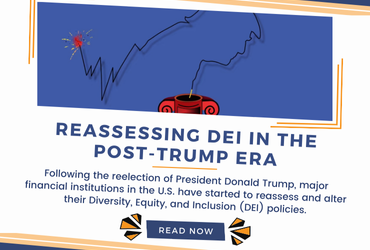
BYD, China’s dominant electric vehicle (EV) maker, has sparked an industry-wide price war by slashing prices across 22 models — with the entry-level Seagull priced at just RMB 55,800 (~USD 7,780). This aggressive move reflects BYD’s vertically integrated model, which still delivers a gross margin near 20% in early 2025. But the underlying economics are troubling.
China’s electric vehicle (EV) sector is facing mounting structural and external challenges, driven by severe domestic oversupply, razor-thin margins, and rising trade barriers. Great Wall Motor Chairman Wei Jianjun recently likened the situation to the collapse of Evergrande, warning that “if this kind of competition continues, many companies will not survive.” The comparison isn’t just rhetoric — like Evergrande, BYD’s scale is vast and deeply embedded in China’s economy, with reports of payment cycles to suppliers stretching up to 270 days to preserve liquidity. While BYD remains profitable, the broader industry is showing signs of strain, with analysts citing average net margins of just 2–3%. Domestically, over 160 EV makers are locked in a brutal price war, slashing profits in a saturated market. Externally, avenues to offload excess production are narrowing: the European Union has imposed an additional 17.4% tariff on BYD EVs, atop a 10% base rate, while the U.S. has effectively shut its doors with a 100% tariff on Chinese EV imports. These pressures expose the fragility of a sector once seen as the crown jewel of China’s manufacturing future, raising real questions about its long-term sustainability.
Just a good time amid escalating geopolitical tensions and global economic uncertainties for the ASEAN-GCC-China Summit held on May 27, 2025, in Kuala Lumpur. Malaysian Prime Minister Anwar Ibrahim described the summit as ushering in a new era for regional economic ties, emphasizing the combined strength of ASEAN, the Gulf Cooperation Council, and China—representing a market of over 2 billion people with nearly $25 trillion in GDP. This trilateral collaboration is especially timely as global trade dynamics shift and economic challenges intensify. The summit offers a strategic platform for economic diversification and resilience, aiming to strengthen trade connectivity, digital economies, and sustainable development among these regions. Prime Minister Anwar’s vision highlights the importance of this partnership in fostering inclusive growth and stability, positioning the participants to better navigate global economic uncertainties.
My hope is that the ASEAN-GCC-China Summit will transform challenges in China’s EV sector—and beyond—into opportunities by fostering regional cooperation, innovation, and sustainable growth. Together, these regions can strengthen supply chains, open new markets, and advance clean technology for a greener, more resilient economy. Malaysia-wise, in the near term, we should closely monitor how evolving tariff policies will shape the market narrative alongside the upcoming results season. Given the uncertainties, we remain selective in our stock and sector picks, favoring domestic-oriented sectors that are better positioned to weather external shocks and capitalize on local growth opportunities.
Phillip Capital Malaysia and our offerings
We reaffirm our belief that there are still opportunities in the market, and we maintain a discerning approach in choosing high-quality stocks for our portfolio. However, it is crucial to exercise caution and carefully select investment options to ensure the best risk-adjusted returns. By taking a vigilant and discerning approach, investors can potentially reap the benefits of the current market opportunities while minimising risks.
A noteworthy avenue for investors seeking diversification in their portfolio is through PhillipCapital Malaysia. PhillipCapital Malaysia offers multiple private mandate services managed by professional fund managers. By leveraging PhillipCapital Malaysia’s private mandate services, investors can enhance their resiliency, optimise portfolio performance, and navigate the complexities of the market with confidence.
We also offer both conventional and Shariah-compliant options to cater to the needs of all investors. For Malaysia’s mandates, we like:
- PMART/PMA Dividend Enhanced and/or PMART/PMA Dividend Enhanced ESG
Our PMART Dividend Enhanced and PMA Dividend Enhanced is an income-driven portfolio focused on high dividend-yielding equities. We apply the Dog of the Dow approach, screen and select top market cap stocks to minimise risk and ensure consistent performance. The portfolio is an equal weighting portfolio which reduces concentration risk and provides similar exposure to all clients, both initially and after rebalancing. We offer both conventional and Shariah investment options to cater to the diverse needs of our investors. Click here to learn more. We recently also introduced PMART/PMA Dividend Enhanced ESG Mandate as we remain dedicated to investing in ESG stocks given their stronger valuation and profitability.
- PMART/PMA ESG
Phillip Capital Malaysia offers discretionary portfolio that invests in stocks with high ESG ratings from the F4GBM and F4GBMS Indices, namely PMART and PMA ESG. There are both conventional and Shariah options available. To explore the companies in which both Conventional and Shariah ESG mandates invest, you can refer to the provided link.
- PMART/PMA Blue Chip and Opportunity
Our Blue-Chip portfolios primarily allocate our investments towards companies with large market capitalisations, while the Opportunity portfolios predominantly invest in companies with smaller market capitalisations. We also offer both conventional and Shariah-compliant options to cater to the needs of all investors.
Please click on the link to learn more or email us at cse.my@phillipcapital.com.my if you require any further information.
Disclaimer:
The information contained herein does not constitute an offer, invitation or solicitation to invest in Phillip Capital Management Sdn Bhd (“PCM”). This article has been reviewed and endorsed by the Executive Director (ED) of PCM. This article has not been reviewed by The Securities Commission Malaysia (SC). No part of this document may be circulated or reproduced without prior permission of PCM. This is not a collective investment scheme / unit trust fund. Any investment product or service offered by PCM is not obligations of, deposits in or guaranteed by PCM. Past performance is not necessarily indicative of future returns. Investments are subject to investment risks, including the possible loss of the principal amount invested. Investors should note that the value of the investment may rise as well as decline. If investors are in any doubt about any feature or nature of the investment, they should consult PCM to obtain further information including on the fees and charges involved before investing or seek other professional advice for their specific investment needs or financial situations. Whilst we have taken all reasonable care to ensure that the information contained in this publication is accurate, it does not guarantee the accuracy or completeness of this publication. Any information, opinion and views contained herein are subject to change without notice. We have not given any consideration to and have not made any investigation on your investment objectives, financial situation or your particular needs. Accordingly, no warranty whatsoever is given and no liability whatsoever is accepted for any loss arising whether directly or indirectly as a result of any persons acting on such information and advice.






